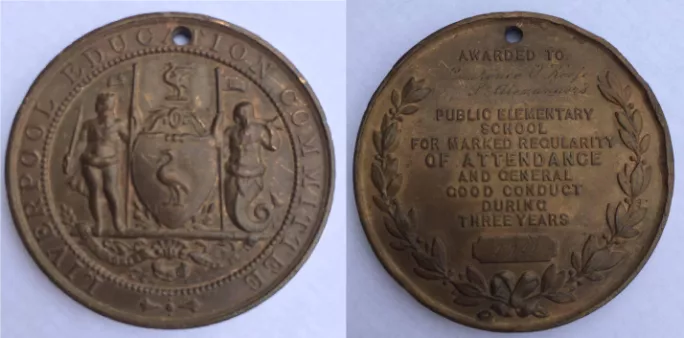- Home
- ‘100 per cent attendance is an achievement worth celebrating’
‘100 per cent attendance is an achievement worth celebrating’

Last week it came to my attention that a blogger had received mainstream media coverage for her treatise on why she will not allow her son to collect a 100 per cent attendance award.
Her three-pronged rejection can, roughly, be boiled down to her assertions that; firstly, school attendance is part of a genetic lottery; secondly, attendance awards “demonise the weakest”; and thirdly, the mother in question is letting her son miss the end of term so she can take him on a European holiday.
At first, I found it a slightly strange target for ire. Surely, through this process of thought, any school sports event (including the foreign trips that football teams often get to go on) demonise the physically weak?
And surely any school music concert or orchestra trip that celebrates the abilities of children whose parents have paid for them to learn an instrument demonises the poor? And surely the uncanny ability to turn up to work every day is at least as valuable a skill to celebrate as playing football or the cello?
Full disclosure: I never received any awards for attendance when I was a kid. My mum - a staunch defender of the “stop-your-whining-and-get-to-school” approach to mild illness did everything she could to get me to that hallowed hundred, but something always got in the way. Family funerals, orthodontist appointments, a part in a play, influenza - such are the adversaries that always kept me way up in the high 90s but, alas, never “perfect” from the perspective of the attendance officer (or indeed anyone else who had the misfortune of having to deal with me as a schoolboy).

Image: Attendance medal received by my great grandfather when he was eight years old. Text reads: Laurence O’Keeffe, St Alexanders Public Elementary School, For Marked Regularity of Attendance and General Good Conduct during Three Years, 1911
In fact, as a teacher who has had to report on the attendance of my tutees at the end of most years, and as a line-manager who has had to make the sundry arrangements tied in with staff absence I can say this: 100 per cent attendance is incredibly rare in all walks of professional life. Rarer than A*s (or Level 9s, for those reading this in the dystopian future).
There are so many things that can stop a young person from attending school - long-term illness and disability are huge factors in this, but also low immune systems due to poor sleeping patterns, malnourishment, mental health concerns, substance abuse, video game addiction, dysfunctional family units, parental abuse, term-time holidays, and the general adolescent malaise that Shakespeare was thinking of when describing “the whining schoolboy, with his satchel / And shining morning face, creeping like snail / Unwillingly to school”. These are just some of the issues that come between a young person and attending the lessons designed to enrich their life chances.
It often seems a miracle that, in the face of all of these obstacles, anyone manages to make it to every single one of their lessons over the course of a year. But it is not a miracle; it is the combination of good fortune, good health, a family unit who supports a healthy lifestyle and the importance of education and, from the children in question, massive amounts of perseverance and strength of character.
We expect more from our students than ever before - anyone who has had anything to do with this summer’s examinations knows that - and the physical and emotional toll of exhaustion it places on these children is unprecedented.
A rare few children, despite it all, have come in every single day this year. Perhaps they cannot take full credit for this achievement, but do not tell me it has no value. Do not tell me that it is not an achievement.
When my students are absent from school, I will continue to email them missed materials, allow them to send me questions and work online, and meet with their parents about the best ways to support them while they are unable to attend.
I will sit down with them after school and work out a manageable plan to help them to catch up on anything they have missed and offer a sympathetic ear if the process of returning after a prolonged absence has been upsetting and I will liaise with the pastoral team about ways to cater to the physical, intellectual and emotional needs of any students who struggle for any reason.
But I will also, at the end of the year, say well done to the small handful of students who have managed to attend every day.
Neither detracts from the other, they are both important parts of my job.
Phil Brown is a writer and English teacher from South London
Want to keep up with the latest education news and opinion? Follow Tes on Twitter and like Tes on Facebook.
Keep reading for just £1 per month
You've reached your limit of free articles this month. Subscribe for £1 per month for three months and get:
- Unlimited access to all Tes magazine content
- Exclusive subscriber-only stories
- Award-winning email newsletters



